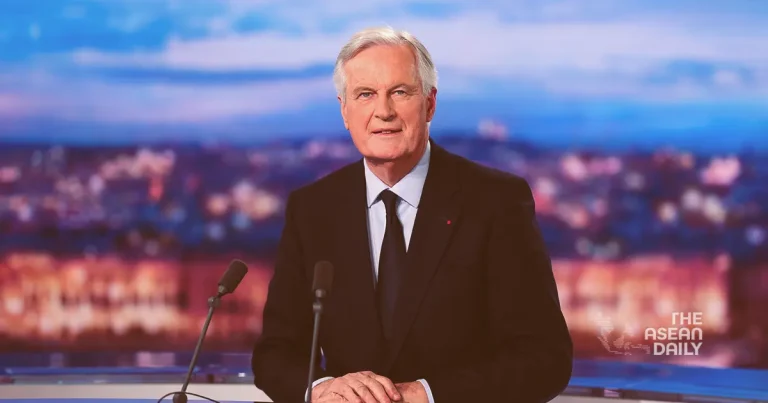5-12-2024 (PARIS) In an unprecedented move that has thrown French politics into turmoil, Prime Minister Michel Barnier’s government was toppled yesterday through a no-confidence vote, marking the first such successful motion in over six decades.
The National Assembly delivered a crushing blow to President Emmanuel Macron’s administration when 331 MPs in the 577-seat chamber backed the motion, initially proposed by the hard left but crucially supported by Marine Le Pen’s far-right faction. The vote marks the shortest-lived government since the establishment of the Fifth Republic in 1958.
The political upheaval comes at a particularly challenging time for France, with public sector strikes looming and markets showing signs of nervousness. The crisis deepened after Barnier forced through a social security financing Bill without a parliamentary vote on December 2, prompting the no-confidence motion.
President Macron, who rushed back from a state visit to Saudi Arabia, now faces the daunting task of appointing a new Prime Minister who can command support in a fractured Parliament. The situation is further complicated by constitutional restrictions preventing new elections within a year of last summer’s poll, which resulted in a hung Parliament.
Potential successors to Barnier include Defence Minister Sebastien Lecornu, centrist ally François Bayrou, and former Socialist Interior Minister Bernard Cazeneuve. Sources close to the Élysée Palace suggest Macron is keen to make a swift appointment to stabilise the situation.
The political turmoil coincides with several critical events, including planned public sector strikes on December 5 and the highly anticipated reopening of Notre-Dame cathedral on December 7, where Donald Trump is expected to make his first foreign appearance since his recent election victory.
Le Pen’s support for the motion has raised eyebrows, with some observers suggesting it forms part of a broader strategy to force early presidential elections before her March trial verdict for alleged embezzlement, which could potentially bar her from future presidential contests.
The successful no-confidence vote, the first since 1962 during Charles de Gaulle’s presidency, underscores the increasing instability in French politics and poses significant challenges for Macron’s remaining term, which runs until 2027.




